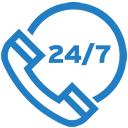
No doubt you’ve seen examples of this in your workplace. You’ll have smart, capable, intelligent colleagues that can solve any problem, yet struggle with interpersonal relationships, teamwork and communication. There’s a good chance these colleagues have a great IQ, yet their EQ is letting them down.
Employees with well developed EQ tend to create a positive environment around them. Because they understand how their own emotions affect their behaviour and regulate their behaviours accordingly, they are respected, highly motivated, open minded, communicate effectively and have the tools to develop good relationships with others.
Now, developing your EQ is not as difficult as you might imagine. There are simple ways you can increase your own emotional intelligence right now, to strengthen interpersonal relationships and improve your standing in the workplace.
Start 2019 right with these 8 EQ hacks, based on the 5 key areas of emotional intelligence – self-awareness, self-regulation, motivation, empathy and social skills.
Identify your feelings
Self-awareness is about being honest with yourself. Get started by answering these questions, to identify your true feelings and give you insight into what might lay behind them.
- How do you feel when you’re in the workplace (stressed, motivated, frustrated, etc.?)
- Do certain tasks, roles or jobs change how you feel (positively or negatively?)
- Do your feelings change as the day goes on (do you feel more positive in the morning?)
The answers to these questions will increase your self-awareness and start you on the path to greater emotional intelligence.
Recognise how your feelings impact your behaviour
It’s natural that how we feel impacts on our behaviour – we’re all human. However, it’s important to understand how this affects your workplace relationships. Keeping a workplace diary, documenting your thoughts, feelings and behaviours can help you identify how your feelings are impacting on your behaviour. During this process you’ll become more mindful of the link between feelings and behaviour and you may be able to identify trends as well.
Learn to regulate yourself
It’s important to have strategies in place to help you regulate your behaviours. For example, when you feel particularly frustrated, develop a plan to deal with your emotions before they take hold. Go for a quick walk outside or around the office, grab a snack or drink to recharge or debrief with a trusted colleague. Putting in place a plan to self-regulate your behaviour is a proactive step towards increasing your EQ.
Manage stress and anxiety
Stress and anxiety affects all of us and can have a huge impact on our emotions and behaviours. If your self-regulation efforts are not effective, it may be time to seek professional assistance. Many workplaces utilise the services of an Employee Assistance Provider (EAP) to support their staff through periods of stress and anxiety. Don’t be afraid to seek assistance to stay on top of your mental and emotional wellbeing.
Take responsibility
Employees with strong levels of emotional intelligence are more likely to take responsibility for their actions. They are less likely to blame others or become defensive when given feedback. Instead of becoming defensive and closing yourself off to the message, practise taking responsibility. Listen, learn and pledge to do better. Don’t lose motivation – instead, resolve to learn from the experience.
Analyse your strengths and weaknesses
The key to emotional intelligence is knowing yourself. The ability to objectively analyse your strengths and weaknesses is an important step in this process. You can complete a SWOT analysis, seek guidance from your manager, or discuss your progress with a mentor or trusted colleague. This knowledge can be a powerful tool to keep you focused, increase your motivation, improve workplace relationships and set you on a more positive and satisfying path.
Put yourself in others’ shoes
Developing empathy is a big part of growing your EQ. To better relate to others and cultivate effective workplace relationships, it’s vital to see the situation from the other side. There is always a reason behind every response. Before you act, look past the obvious and imagine being in their shoes. This is a powerful way to understand their response and will guide you in de-escalating situations, resolving issues and positively moving forward.
Broaden your networks
Consider pushing outside your comfort zone and broaden your networks. Increasing your social circles will connect you with new people, open your mind to new ideas, expose you to new ways of living and broaden your experience. Employees with high levels of EQ are not afraid to learn from others and are continually looking for opportunities to increase their knowledge. Be brave and look at cultivating new social networks this year.
Are you in need of more EQ hacks? Hunterlink offers a range of social and emotional intelligence courses to improve the skills of your workforce. Contact us today to find out how we can help build emotional intelligence in your organisation.

